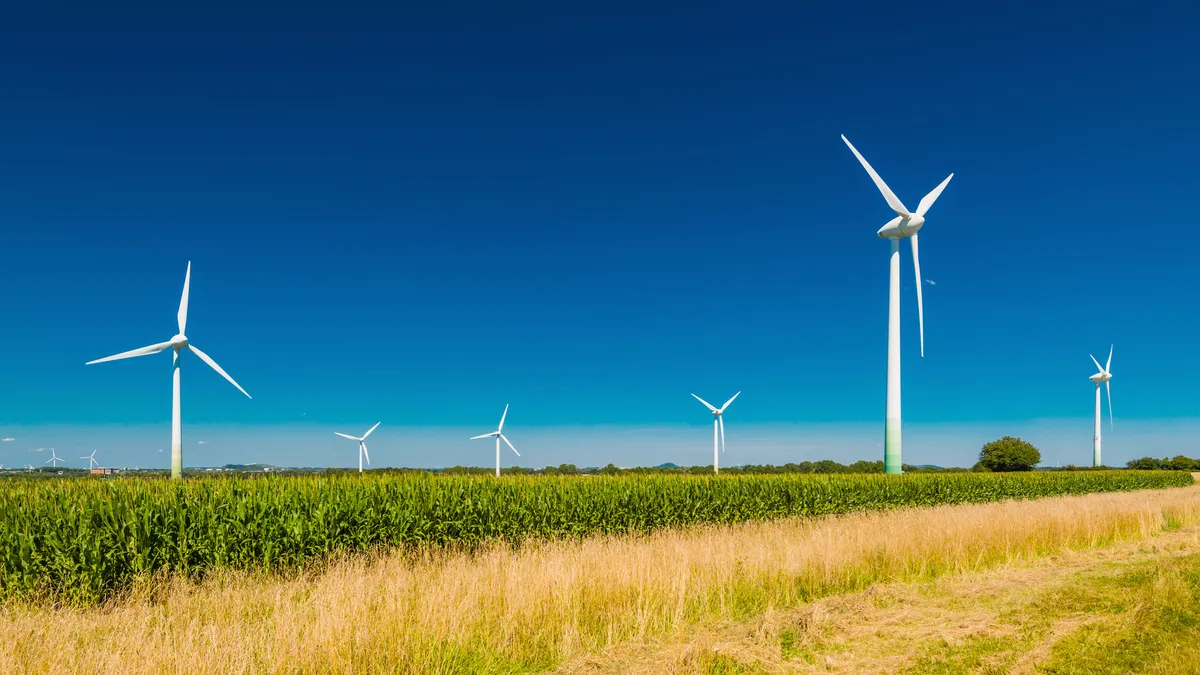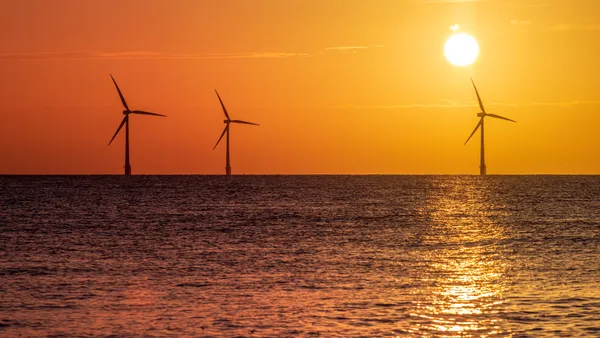Dive Brief:
- Wyoming lawmakers have rejected a proposal to increase the state's tax on wind production—the only one like it in the nation—even as the state struggles to deal with a $200 million budget gap, the Los Angeles Times reports.
- The current $1/MWh production tax brought in $3.8 million last year; the legislature’s Joint Revenue Committee had been considering a proposal to raise it to $3/MWh.
- But the Los Angeles Times reports no supporters of the tax spoke before a five-hour committee meeting last week, before the committee ultimately rejected it.
Dive Insight:
There was little support for a proposed wind tax increase, which was good news for Power Company of Wyoming as the company develops one of the biggest wind projects in the nation.
If completed, the Chokecherry and Sierra Madre Wind Energy Project would have a nameplate capacity of 3,000 MW and would be one of the largest facilities in North America. But PCW had indicated the wind tax could put the project in jeopardy.
While even tripling the current wind tax wouldn't make much of a dent in Wyoming's $200 million budget gap, some have pressed lawmakers to look everywhere for additional revenues as coal and fossil fuel production, the bread and butter of the state, plummets. If production from Chokecherry and Sierra Madre is factored in, the wind tax credit could help generate $40 million according to the Los Angeles Times.
PCW has been working towards development of the the project for almost a decade. In May, Rep. Michael Madden (R), co-chair of the Revenue Committee, told Wyoming Public Media he wanted wind producers to pay comparable tax rates to oil and gas developers.
But PCW parent company Anschutz argued that its effective tax rate is much higher than it appeared. Accounting for property, sales and use taxes, PCW's Chokecherry project will end up paying about $4.76/MWh of generation, the company said. And of that, $3.91/MWh come from Wyoming state taxes—higher than those paid by fossil fuel generators, Anschutz argued.
Wyoming is not alone in levying a tax on wind production, but it is not joined by many. South Dakota also has a tax in place for wind farms 5 MW or larger.














